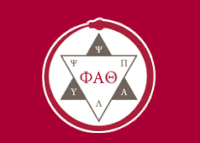Abstract
This paper attempts to recast and distance the interpretation of May '68 away from popular historiographical trends in which the movement is treated as a "generational revolt" or a "cultural revolution" that allowed France to develop into a modern, liberal society. The character of the relationship between militant students and workers remains the most complicated and understudied element of the uprising. Thus, the actions taken by student and worker militants at the occupied Sorbonne constitute the most radical element of the movement, and represented the only cases in which the radical language produced by activist students achieved form, namely in the organization of effective student-worker cooperation in the university and factory occupations in Paris.
Recommended Citation
Cowles, John
(2009)
""Vivez sans temps morts, jouissez sans entraves:" Language and Identity in the May '68 Student-Worker Action Committees,"
Voces Novae: Vol. 1, Article 3.
Available at:
https://digitalcommons.chapman.edu/vocesnovae/vol1/iss1/3


